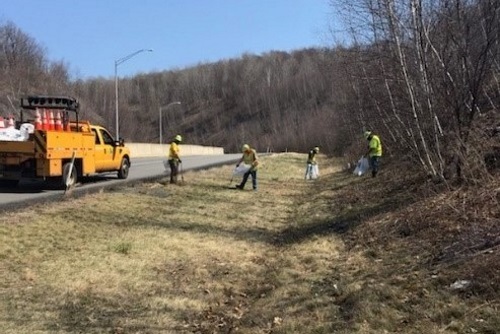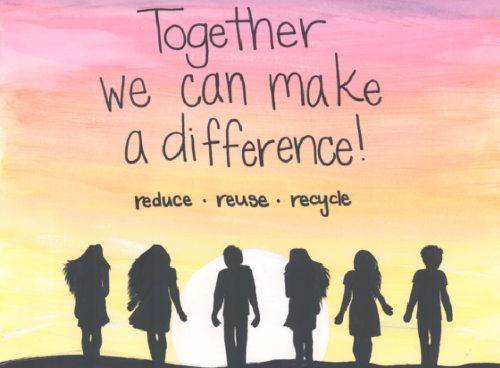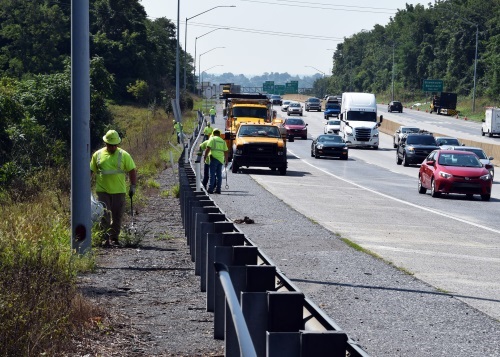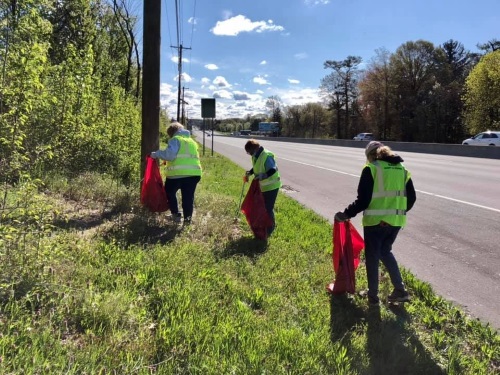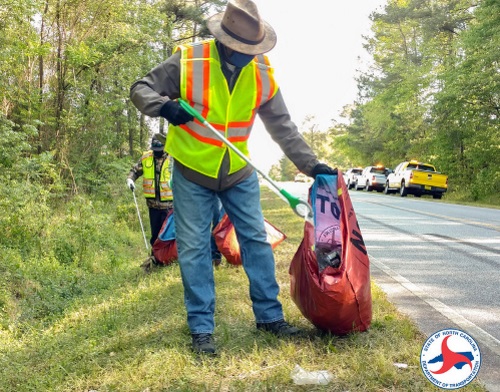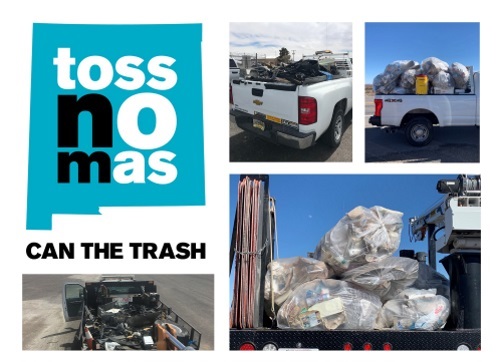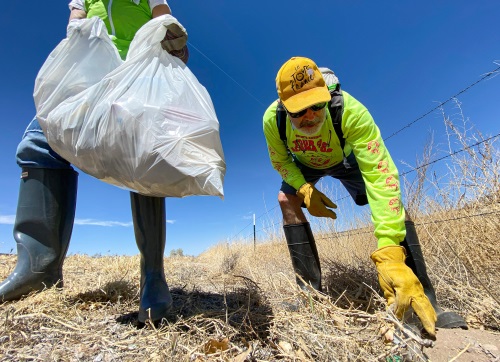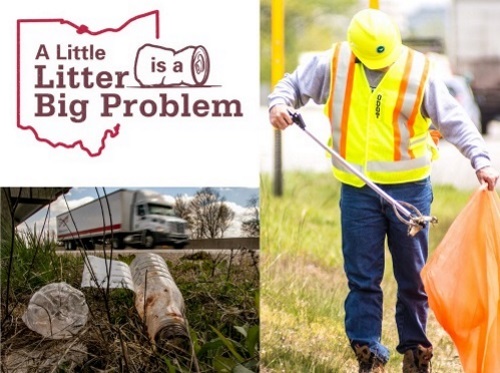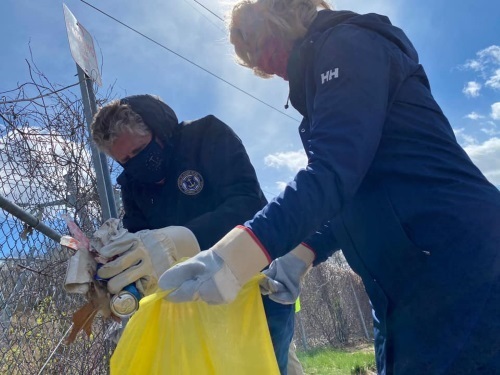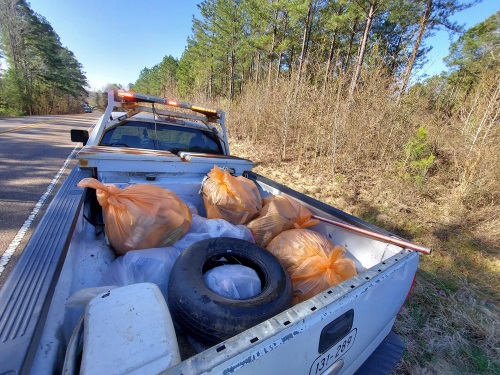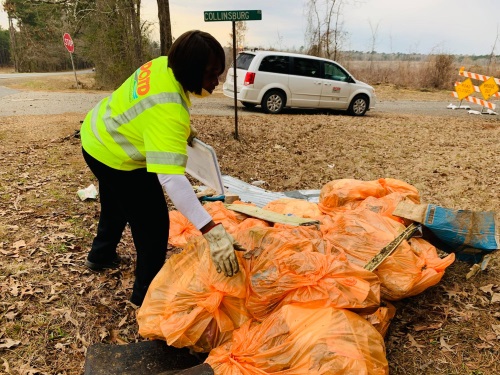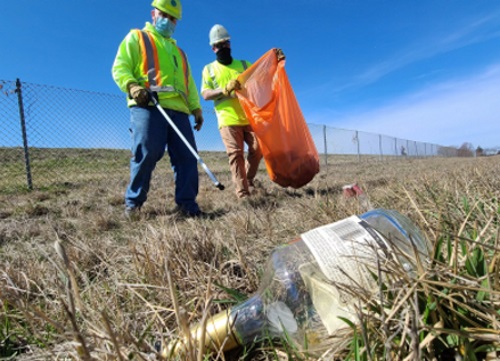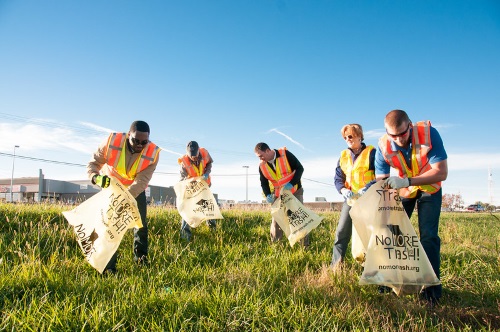The Pennsylvania Department of Transportation will play a key role in executing the state’s first-ever ‘Litter Action Plan’ unveiled by Governor Tom Wolf (D) on November 22.
[Above photo by PennDOT]
“Pennsylvania is a great place to live, work, and raise a family. It’s a beautiful state with stunning landscapes and bountiful natural resources. But, we’ve got a litter problem,” said Gov. Wolf in a statement.
“Litter is bad for the environment and our communities, it’s a drain on taxpayer dollars,” he added. “I’m excited to unveil a solution that all 13 million Pennsylvanians can be a part of. It’s a blueprint for a cleaner commonwealth.”
Demonstrating the cost of litter to communities and the commonwealth, PennDOT Secretary Yassmin Gramian noted that the agency’s annual $14 million cost to clean up litter makes litter prevention especially important.
“We recognize we need to change behavior, not just clean up the mess,” she said. “With this commonwealth Litter Action Plan, we’ve provided examples, resources, and calls to action so we can make some transformative change here in Pennsylvania.”
The plan outlines 16 recommendations for Pennsylvania, while also detailing efforts by several state agencies in supporting the “higher-level” recommendations in the plan. Those include:
- PennDOT, the Department of Community and Economic Development, and Department of Environmental Protection collaboration on an anti-litter campaign anticipated for spring 2022.
- PennDOT analysis of where and how to ensure it has the right litter-reducing tools in place in its public-facing facilities.
- DEP’s work on a new rulemaking to provide convenient and affordable access to waste disposal and recycling services in rural areas of Pennsylvania where trash collection and recycling services are currently not economically feasible.
- Updates to the Department of Conservation and Natural Resources “Leave No Trace” program with working to update their concessionaire agreements to include language aimed at combatting litter, such as requiring food providers to minimize paper straw and disposable utensil use.
- When onsite composting is available at a state park, concessionaires will be required to work with DCNR to convert as many of their food service products to compostable, paper-based forest product alternatives and then compost them with the food waste.
- The Pennsylvania State Police “Operation Clean Sweep,” which launched this summer, reinforces a zero-tolerance mindset with litter enforcement. This complements their assistance with enforcing “Litter Enforcement Corridors” that state agencies and local governments can designate via a 2018 law to combat litter.
The plan’s workgroups included 17 participants from local governments and among the group’s recommendations for local governments is the suggestion to “get creative with public waste infrastructure maintenance.” It also recommends several proposals to the state’s General Assembly to change existing laws – as well as proposing three laws – to reduce littering.

